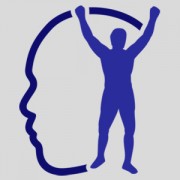MESSAGE #1024 HOW TO WIN MORE PART II
Today’s message is especially dedicated to the great tennis coach, Javier Perez Cigoj in Argentina.
So yesterday I talked about negative reactions on the court and why they can hurt your performance and results.
Soon after, I received a message from Javier, a tennis coach in Argentina and he said, “Great message, but how should you act instead?”
Well, Javier, the key is to let the point go – you can think about how to make an adjustment, but then, keep it in the past.
1. Take a couple deep breaths (to stay in the present and to lower your heart rate).
2. Project a confident image.
3. Think about where you want to hit your next shot.
4. Focus on the things you can control (your energy, attitude, strategy and effort).
5. Cultivate the feeling of winning the next point (even before the point begins).
The best way to increase your chances of winning is to not focus on winning.
Focus on the process instead of the product and as a by-product you will win more.

